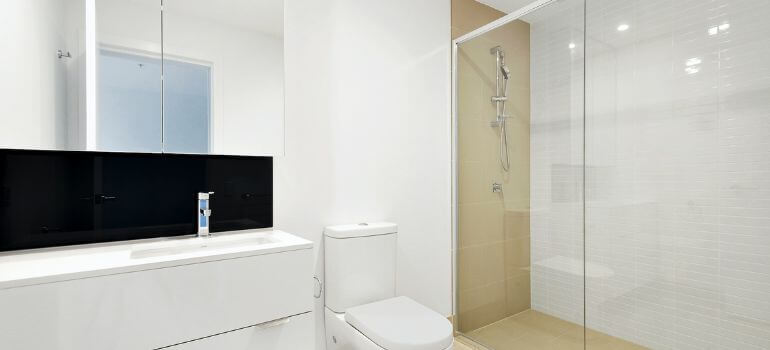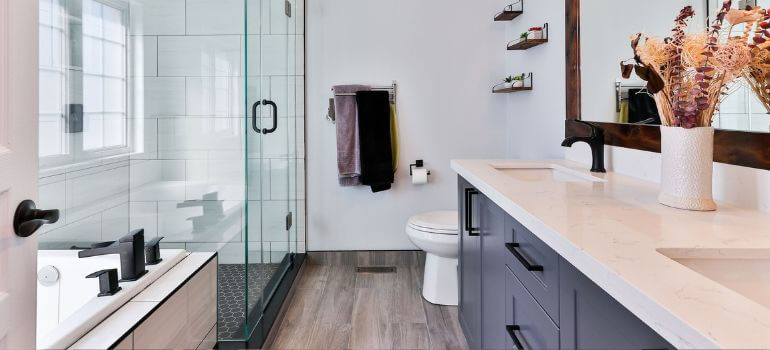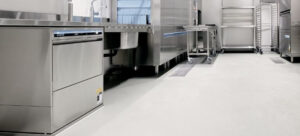Introduction
When it comes to upgrading your bathroom, the choice of shower walls plays a crucial role in both functionality and aesthetics. Two popular options in the market are acrylic and quartz shower walls. In this comprehensive guide, we’ll explore the pros and cons of each material, helping you make an informed decision for your bathroom renovation project.
Understanding Acrylic Shower Walls
Acrylic shower walls are a cost-effective and lightweight alternative to traditional tiles. They are known for their easy installation process, making them a popular choice for DIY enthusiasts.
Pros of Acrylic Shower Walls
Affordability
Acrylic shower walls are budget-friendly, making them an attractive option for those looking to renovate on a tight budget.
Lightweight
Being lighter than many other materials, acrylic walls are easy to handle during installation, reducing the need for heavy-duty structural support.
Easy Installation
The installation process for acrylic shower walls is straightforward, making it an ideal choice for those looking to complete their bathroom renovation quickly.
Cons of Acrylic Shower Walls
Durability Concerns
While acrylic is durable, it may not withstand heavy impacts as well as some other materials, potentially leading to scratches or dents.
Limited Design Options
Acrylic shower walls may have limited design options compared to materials like quartz, restricting your choices in creating a personalized bathroom space.
Exploring Quartz Shower Walls
Quartz shower walls are renowned for their durability and luxurious appearance. Composed of natural quartz crystals and resin, these walls offer a unique blend of strength and style.
Advantages of Quartz Shower Walls

Quartz shower walls have gained immense popularity in the realm of bathroom renovations due to their unique blend of aesthetics, durability, and low maintenance. Let’s delve into the specific advantages that make quartz a coveted choice for many homeowners.
Durability
One of the standout features of quartz shower walls is their exceptional durability. Composed of natural quartz crystals and resin, these walls are highly resistant to scratches, stains, and impacts. This durability ensures a long-lasting and resilient surface that can withstand the rigors of daily use.
Aesthetics
Quartz shower walls offer a wide range of design possibilities, making them a favorite among those seeking a luxurious and visually appealing bathroom. The material’s composition allows for an array of colors and patterns, providing homeowners the freedom to customize their space according to their unique taste and style preferences.
Low Maintenance
For individuals with busy lifestyles or those who simply prefer minimal upkeep, quartz shower walls are an excellent choice. Unlike some other materials that may require regular sealing or special cleaning agents, quartz demands minimal maintenance. Regular cleaning with mild soap and water is usually sufficient to keep the walls looking pristine.
Resistance to Mold and Mildew
Quartz’s non-porous nature is a significant advantage in damp environments like bathrooms. The non-porous surface resists water absorption, making it highly resistant to the growth of mold and mildew. This not only contributes to a healthier living environment but also reduces the need for rigorous cleaning routines.
Versatility in Design
Whether you envision a sleek, modern bathroom or a more classic and timeless look, quartz shower walls can accommodate various design aesthetics. The material’s versatility allows for seamless integration with different styles, ensuring that it complements the overall theme of your bathroom.
Increased Property Value
Investing in quartz shower walls can potentially enhance the overall value of your property. The luxurious appearance and long-term durability of quartz are features that appeal to prospective homebuyers, making it a wise choice for those considering the resale value of their homes.
Stain Resistance
Quartz is inherently resistant to staining, making it an ideal choice for a space prone to spills and splashes. The non-porous surface prevents liquids from penetrating, making it easier to clean and maintain the pristine look of your shower walls.
Consistency in Color and Pattern
Unlike natural stone options that may exhibit variations in color and pattern, quartz offers consistency. This uniformity ensures that your shower walls maintain a cohesive and polished appearance, contributing to the overall aesthetics of your bathroom.
In conclusion, the advantages of quartz shower walls extend beyond mere visual appeal. With durability, low maintenance, and design versatility at the forefront, quartz emerges as a compelling choice for those seeking a stylish and enduring bathroom upgrade.
Disadvantages of Quartz Shower Walls
While quartz shower walls boast numerous advantages, it’s important to consider potential drawbacks before making a decision. Understanding the limitations of quartz can help homeowners make informed choices in their bathroom renovation projects.
Cost
One of the primary disadvantages of quartz shower walls is the associated cost. Compared to more budget-friendly options like acrylic, quartz tends to be on the higher end of the price spectrum. The initial investment can be a significant factor for individuals with tight renovation budgets.
Weight
Quartz is a dense and heavy material. While this contributes to its durability, it can pose challenges during installation. Quartz shower walls require strong structural support to bear their weight, potentially increasing installation costs and complexities.
Professional Installation Required
Due to the weight and intricacies involved in working with quartz, professional installation is often recommended. While this ensures proper placement and minimizes the risk of issues arising from improper installation, it adds to the overall project cost.
Limited DIY Options
Unlike some lighter materials that are more DIY-friendly, working with quartz may not be suitable for homeowners who prefer to take on bathroom renovation projects independently. The complexity of handling and installing quartz often necessitates the expertise of professionals.
Susceptibility to Heat
While quartz is generally heat-resistant, extreme and sudden temperature changes can cause thermal shock. Placing hot objects directly on the surface may lead to cracks or damage, requiring homeowners to exercise caution and use protective measures.
Visible Seams
The installation of quartz shower walls may involve seams where individual slabs or sections meet. While skilled professionals can minimize the visibility of seams, they may still be noticeable, potentially affecting the overall aesthetics of the bathroom.
Limited DIY Repair Options
In the event of damage, repairing quartz shower walls may require professional assistance. DIY repairs are limited, and attempting to fix issues independently may result in further damage or an uneven appearance.
Environmental Impact
The production of quartz involves mining and processing, which can have environmental implications. While some manufacturers emphasize sustainable practices, it’s essential for environmentally conscious consumers to research the sources and practices of quartz suppliers.
Not Completely Scratch-Proof
While quartz is highly resistant to scratches, it is not entirely scratch-proof. Sharp objects or excessive force can still cause scratches on the surface, albeit less frequently than with some other materials.
Comparison between Acrylic and Quartz Shower Walls
Choosing the right material for your shower walls is a critical decision in any bathroom renovation. Acrylic and quartz are two popular options, each with its own set of characteristics. Let’s delve into a comprehensive comparison to help you make an informed choice based on your preferences and requirements.
Cost
- Acrylic: Acrylic shower walls are known for their affordability, making them an attractive option for budget-conscious homeowners. The material itself is less expensive, and the installation costs are generally lower.
- Quartz: Quartz, on the other hand, tends to be more expensive. The luxurious appearance and durability of quartz contribute to its higher price point. Homeowners should be prepared for a more significant initial investment.
Winner: Acrylic, for those prioritizing budget-friendly options.
Durability
- Acrylic: While acrylic is durable, it may not withstand heavy impacts as well as quartz. Scratches and dents are possible, and the longevity of acrylic shower walls may be influenced by the quality of the material.
- Quartz: Quartz is renowned for its exceptional durability. Resistant to scratches, stains, and impacts, quartz shower walls offer a robust and resilient surface that stands the test of time.
Winner: Quartz, for superior durability.
Maintenance
- Acrylic: Acrylic shower walls require minimal maintenance. Regular cleaning with mild soap and water is typically sufficient to keep them looking fresh. However, attention is needed to avoid scratches and dents.
- Quartz: Quartz demands even less maintenance. The non-porous surface resists staining and the growth of mold and mildew. Cleaning is straightforward, and the material maintains its pristine appearance with minimal effort.
Winner: Quartz, for low-maintenance requirements.
Design Options
- Acrylic: Acrylic shower walls may have limited design options. While there are choices in terms of color and pattern, the range is often narrower compared to quartz.
- Quartz: Quartz offers a broad spectrum of design possibilities. With various colors and patterns available, homeowners have the freedom to create a customized and visually appealing bathroom space.
Winner: Quartz, for versatile design options.
In summary, the choice between acrylic and quartz shower walls depends on factors such as budget, desired aesthetics, and maintenance preferences. Acrylic is a practical and budget-friendly option, suitable for those looking for a quick and cost-effective bathroom upgrade. On the other hand, quartz stands out for its durability, low maintenance, and diverse design choices, making it an excellent investment for a more luxurious and enduring bathroom renovation. Consider your priorities and weigh the pros and cons carefully to determine the best fit for your specific needs.
Factors to Consider When Choosing Between Acrylic and Quartz
Budget
Consider your budget constraints and weigh the cost implications of both materials.
Design Preferences
Evaluate the design flexibility each material offers and choose based on your aesthetic preferences.
Maintenance Commitment
Determine how much time and effort you are willing to invest in the long-term maintenance of your shower walls.
Real-Life Experiences and Testimonials
Explore real-life experiences of individuals who have opted for acrylic or quartz shower walls to gain valuable insights.
How to Clean and Maintain Acrylic and Quartz Shower Walls
Discover practical tips for keeping your chosen material in pristine condition, ensuring longevity and visual appeal.
Addressing Common Misconceptions
Clear up any misconceptions about acrylic and quartz shower walls to make an informed decision based on facts rather than hearsay.
Making an Informed Decision
Summarize the key points to help readers make a well-informed decision based on their specific needs and preferences.
Conclusion
Choosing between acrylic and quartz shower walls involves considering various factors, from budget constraints to design preferences. By weighing the pros and cons outlined in this guide, you can confidently select the material that aligns with your bathroom renovation goals.
FAQs
While acrylic is durable, quartz generally offers higher durability and resistance to damage.
Yes, acrylic may have more limited design options compared to the versatile choices quartz provides.
Yes, acrylic shower walls are known for their easy installation, making them suitable for DIY projects.
Quartz requires minimal maintenance, typically requiring only regular cleaning to maintain its appearance.
Yes, quartz offers a wide range of colors and patterns, allowing for a customized and personalized bathroom design.



